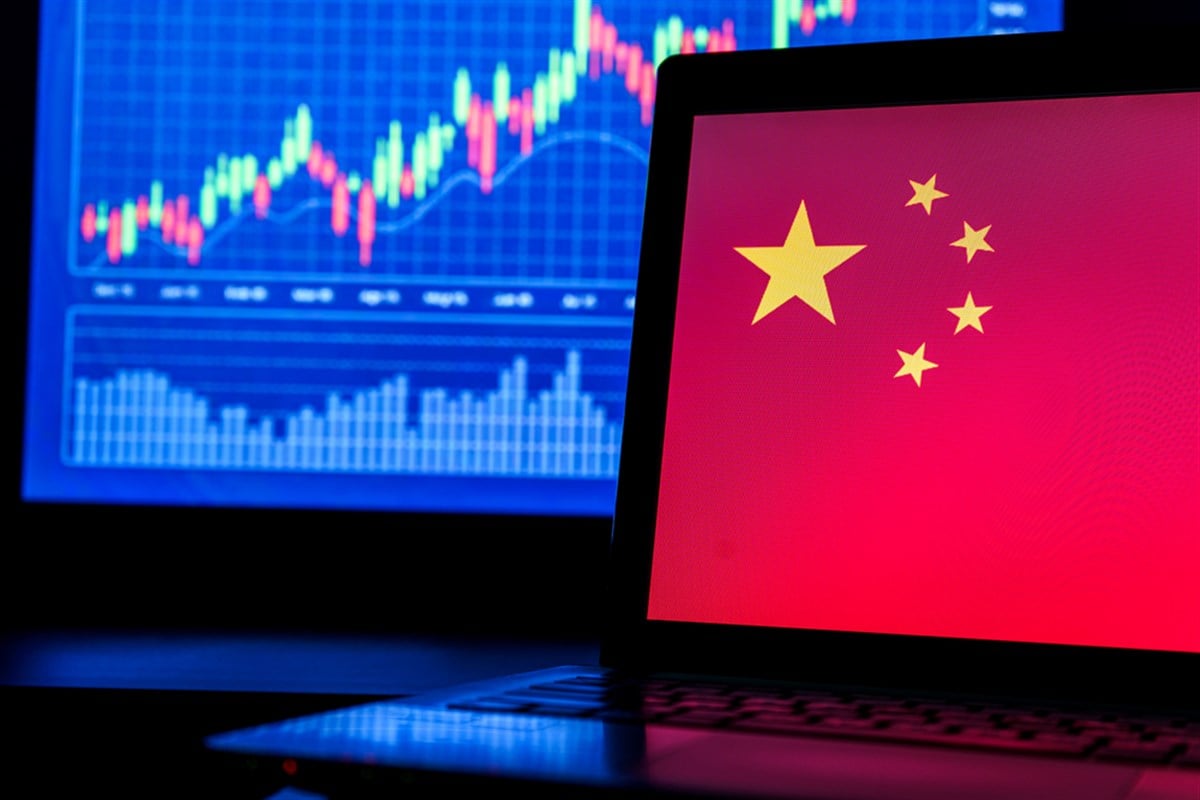
Investors have feared investing in Chinese stocks for the past two years, keeping the iShares MSCI China ETF (NASDAQ: MCHI) at compressed valuations during this period. This fear can be attributed mostly to negative media headlines and the unwillingness to let capital work overseas into companies that aren’t that familiar or popular in the U.S.
However, many economic and fundamental markers propose a better deal and value in some of China’s largest companies in the technology sector. Now that the government has decided to do the unthinkable, many are realizing that Asia’s powerhouse is just as capitalist as the U.S. by injecting up to $140 billion into the economy recently, along with a 50 basis point interest rate cut to follow the Federal Reserve (the Fed) decision.
These recent events have sparked a new rally in names like Alibaba Group (NYSE: BABA) and Baidu Inc. (NASDAQ: BIDU). More than that, some of Wall Street’s favorite investors have come out to express their bullishness in China and these stocks, with the most recent talking head being David Tepper. Tepper is the manager of Appaloosa, a hedge fund with up to $5 trillion in assets under management. But is he right this time?
David Tepper's Biggest Bullish Bet Since 2010: Why Chinese Stocks Are on His Radar
Last week, Tepper went live on CNBC to say he recommends buying “everything” related to China. Citing higher-quality companies and valuations, he thinks China’s new rate cuts could bring a new wave of rallies across its stock market.
The last time Tepper made this call was in 2010, during the aftermath of the financial crisis. He went on live financial news and said to buy everything. Everyone knows how the stock market performed after that period.
Lots of fund managers and talking heads point out plays in the stock market, but very few actually make these views the largest positions in their portfolio as Tepper did. Looking into Appaloosa’s 13-F filing, investors will notice that Tepper now holds up to 10.5 million shares in Alibaba alone, making it his biggest holding.
At today’s price, this investment is worth roughly $1.1 billion. Considering that most of Tepper’s portfolio has been in United States technology names like Amazon.com Inc. (NASDAQ: AMZN), Microsoft Co. (NASDAQ: MSFT), and even Meta Platforms Inc. (NASDAQ: META), this deviation into Chinese technology has more meaning for investors to consider.
Here’s why he might have decided to go long China, though. Any time a stock market yields more in dividends than the country’s ten-year government bond, there typically is an equity buying spree, which is the case in China today. Due to this divergence, both the iShares China ETF and the KraneShares CSI China Internet ETF (NYSE: KWEB) have rallied.
The Chinese ten-year bond yields about 2.2% today, while the stock market had yielded a high of 4% before the recent spike in prices. Considering that the dividend yield on the iShares China ETF is still 2.3% and above the ten-year yield, fundamentals suggest there is still more upside to be had.
Tepper is not alone in this view; others on Wall Street suggest that China has more room to run, with both Alibaba and Baidu being preferred for allocation.
Wall Street Sounding Board Signals: It's Time to Buy China Stocks
Michael Burry, the guy who called the 2008 financial crisis, has also gone very long on China. His choice for a top holding is Alibaba. Just like Tepper, his fund now holds up to 155,000 shares of the company for an approximate value of $16.6 million today.
Baidu is within his top five holdings, at 75,000 shares, for a net investment of $7.8 million. The buy side on Wall Street is definitely growing bullish for China, but that’s only half the picture. Retail money now has to get on board and lose its fear of Chinese names, and that’s where the sell side comes into play.
Analysts at Benchmark now see a price target of up to $118 a share for Alibaba, which calls for an additional 10% upside from where it trades today. However, as sentiment and fundamentals begin to change for the company, these valuations may have to be pushed higher.
Just a year ago, the consensus price target for Alibaba was as high as $150 a share. The company has done nothing but improve and expand, so today’s lower targets can only mean a sentiment and momentum change in the stock, which has now improved. Investors should expect to see a new round of Wall Street upgrades for Alibaba any day now.
The story is very similar regarding Baidu stock. Last year, the consensus price target was set at $185 a share, but now that the company has suffered from bearish price action and negative sentiment around Chinese stocks, the consensus is down to $132.1 a share.
Despite this new target being much lower and disconnected from reality, it still calls for a 25.6% upside from where the stock trades today. Given that Alibaba has now become more popular among investors, analysts have another reason to consider boosting that name in the coming months.




